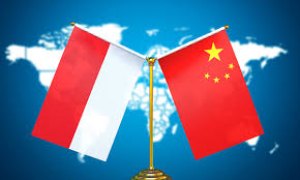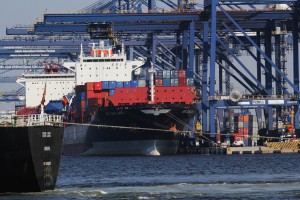ALBA Group to build plastic recycling plant in Kendal Industrial Park
ALBA Group is constructing a plastic waste recycling plant in Kendal Industrial Park, Central Java, with a capacity of 36,000 tons per year that will require approximately 48,000 tons of PET bottle waste annually.
Dian Kurniawati, Director of PT ALBA Tridi Plastics Recycling Indonesia, said the PET bottle waste would be collected from Java and surrounding areas and that ALBA will actively collaborate with local waste collectors and support them in this initiative.
"This project will also create new job opportunities in the region for various technical and administrative positions, sourced from the local community," she said during an interview in Kendal on Wednesday, July 4, 2024.
Schweitzer, Chairman of ALBA Group Asia, emphasized the company's vision of a world without waste, which has driven their expansion into Indonesia and the establishment of the recycling facility in Kendal.
"With nearly 8 million tons of waste, Indonesia is the second-largest contributor of ocean plastic waste in the world," Schweitzer noted.
He added that ALBA is leveraging expertise from Interzero, ALBA's sister company in Germany, for this project. They will develop the concept, build, and operate the plant to help Indonesia reduce the impact of plastic waste.
"We aim to increase plastic waste collection in Indonesia by creating a market. We believe in the positive social impact of this project as we work with local collectors and generate numerous new jobs in the surrounding areas," he said.
Plastic waste poses a significant threat to the environment and marine ecosystems. According to the World Population Review, approximately 4.8 to 12.7 million metric tons of plastic enter the ocean each year.
A 2021 report identified five Asian countries − China, Thailand, Vietnam, Indonesia, and the Philippines − as the largest contributors to ocean plastic waste. Indonesia ranks fifth, with an estimated 56,000 tons of plastic waste entering the ocean in 2021. China tops the list with a contribution of 70,000 tons.
Tag
Already have an account? Sign In
-
Start reading
Freemium
-
Monthly Subscription
30% OFF$26.03
$37.19/MonthCancel anytime
This offer is open to all new subscribers!
Subscribe now -
Yearly Subscription
33% OFF$228.13
$340.5/YearCancel anytime
This offer is open to all new subscribers!
Subscribe now






